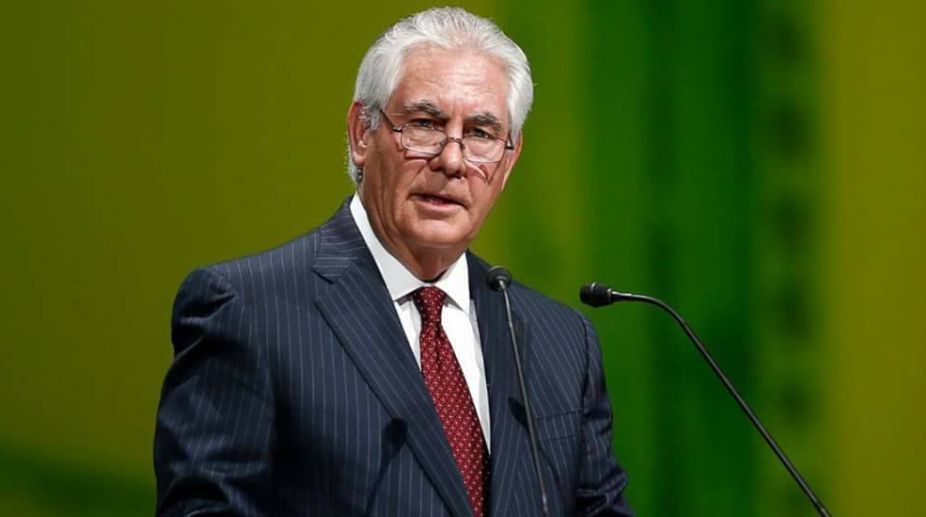PM speaks with Trump, says India, US will work together towards global peace, prosperity, security
This was the first telephonic conversation between both leaders since President Trump took office last week.

US Secretary of State Rex Tillerson (Photo: Facebook)
The United States administration, which has been ever so anxious to dictate its foreign policy to the world, has given the jitters to the pivotal State Department or what is generally referred to as Washington DC’s “Foggy Bottom”. Going by the signals emitted from the White House over the weekend, Donald Trump is on course to remove Rex Tillerson, who has been rated as “one of the most consequential Secretaries of State in recent history”. The “firing”, as they say, is only a question of time, although the President has denied these reports. Misgivings that the exodus of senior diplomats over the past year ~ specifically since President Trump’s inaugural ~ is bound to weaken America’s foreign policy are not wholly unfounded. In the long term, this might well undermine the standing of the US in the world. Since last January, the department has lost 60 per cent of its career ambassadors, ~ the equivalent of four-star generals ~ more than 40 per cent of its three-star-equivalent career ministers and about 14 per cent of its two-star-equivalent minister-counsellors. Furthermore, there has been a 50 per cent drop in the number of those opting for the Foreign Service as a career. It is hard to imagine that Tillerson’s sound instincts on foreign policy were almost routinely undermined by the occupant of the Oval Office. The clash of personalities has been astonishing and to the detriment of the conduct of foreign policy.
And yet there has been a flip side to his tenure as Secretary of State, chiefly his insular style of functioning that is said to have alienated many of the department’s most experienced diplomats. Ergo, he has rocked the applecart rather early in his tenure. Yet the paradox must be that he has exercised good judgment on the most critical issues.
Pre-eminently, he had advised President Trump to accept and not repudiate the Paris climate accord, and thus plough a lonely furrow in international relations. Unlike Mr Trump once more, Mr Tillerson has lent support to the Trans-Pacific Partnership trade agreement, has stood by the Iran nuclear deal, has toned tone down the loose rhetoric on North Korea, has adopted a robust stand against Russian aggression in Ukraine, and has defused the spat between Qatar and Saudi Arabia that President Trump had helped instigate. Mr Tillerson’s policy on a welter of contentious issues has been concordant with the certitudes of sound international relations. And yet President Trump repeatedly rejected the advice of the Secretary of State, to the point of embarrassing him with public contradictions. There is little doubt that the President’s overarching intervention in foreign policy has over the past year eroded the Secretary of State’s credibility in the perspective of foreign governments. He will very probably be replaced by the CIA Director, Mike Pompeo, though not much is known of his expertise in diplomacy.
Advertisement
Advertisement
Advertisement